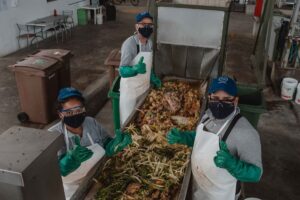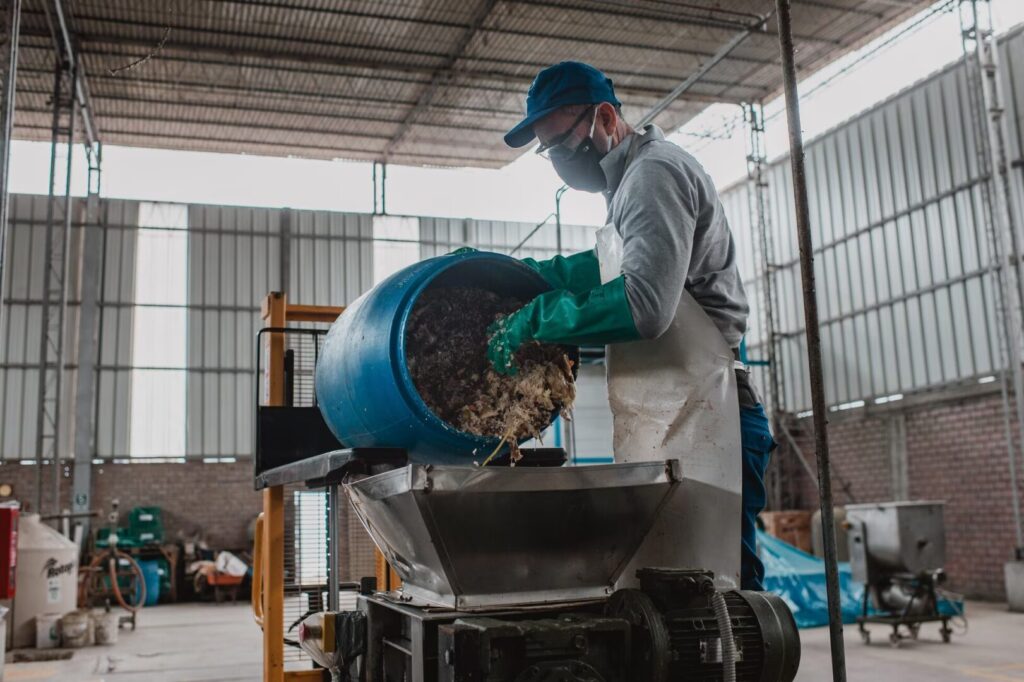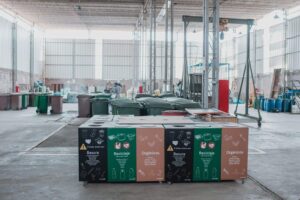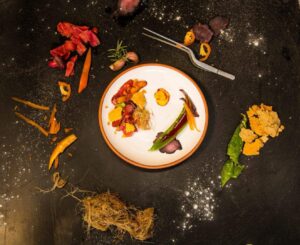On the outskirts of Lima, the capital city of Peru, Pipo Reiser y Andrea Rivera started a project with the objective of finding solutions to the problem of pollution caused by the solid waste disposal.
With that in mind they built a huge industrial building and in 2016 founded. Sinbaa sophisticated recycling plant and complex using artificial intelligence to categorize each waste. Inspired by the circular economyThe company offers its customers sustainable solutions in waste management, training, collection and processing services. El País.
Sinba's founders made this service available to entrepreneurs who for decades had not found sustainable solutions and adequate to manage their waste appropriately.
"Nobody thinks it makes sense to throw garbage behind a hill. Everyone understands that what is waste to some could be put to good use again. Things don't become garbage by throwing them in a dumpster. Things don't disappear and we all know it. The problem is often that we don't find comprehensive solutions that allow us to manage our waste properly," says Reiser, administrator and fierce activist of the circular economy.
According to Circle EconomyThe world could meet its needs as a society with only 70% of what it currently consumes. Each year the world produces 2 billion tons of garbage, but only 14% is recycled, the rest is wasted and transformed into a form of pollution that every year adds more pressure to the planet. In Peru, only 5% of waste is recycled.
With technology of artificial intelligenceSinba separates organic and inorganic solid waste, processes and converts it to a new use, transforming the garbage into things and products that companies can use.
An ideal model for food businesses
Sinba's business model is not only based on its ability to process and transform captured waste into new products, but it also charges its partner companies for the integral and responsible management of their waste. Sinba's team delivers marked containers, provides training on key waste management concepts, collects the waste, processes it properly and then sells the recycled material generated.

But the most innovative aspect of Sinba's proposal is its capacity to process organic waste into inputs for the manufacture of balanced feed for animals from certified urban farms, and even compost. In this way, the circle of sustainability The project closes in a virtuous way and allows large restaurants or food franchises to also have at hand an efficient solution for the transformation of organic waste and leftovers.
"If you are a huge company that generates a lot of waste every month, you should be able to manage that waste without so much hassle. And the truth is that, until recently, recycling was very difficult in Latin America. We need simple, direct, accessible solutions. And that is what we are looking for with Sinba," reveals Rivera.
The zootechnician is convinced that the industry is willing to pay for the certainty that its waste is being processed and will not generate pollution.
"Many companies focus on only one part of the waste management process, which generates a fragmentation of the work. We challenge this paradigm with a comprehensive service, all in a fixed monthly payment," he says.
The internal regulations and sustainability policies that companies and countries around the world are implementing have become a great lever for Sinba's circular vision. Today, responsible waste management is a topic that is attracting more and more companies and brands seeking to demonstrate their commitment to sustainability. This is where the creation of quality seals that guarantee the proper transformation of waste can become a business opportunity for sustainable ventures.
"We want our model to be replicated and scaled up in other areas of the country and the region. We are sure that ventures that provide environmentally responsible solutions can and should be profitable, and that they contribute to the care of our resources," explains Reiser.
Today Sinba is sustainable, but it needs to grow even more in order to scale to keep pace with demand. The company currently has two sources of revenue: waste collection service, which generates 80% of revenue, and the sale of transformed materials, which produces the other 20%.
Fortunately, Sinba's vision of a circular and sustainable economy seems to have caught on in Lima's industry, and this year they expect to be able to process 20 tons of waste per day and achieve sales of close to US$1.5 million. To date, Sinba has more than 60 clients, including the Central restaurant -chosen as the best in the world according to The 50 Best restaurants 2023-, a shopping mall with more than 20 stores, and some 20 Starbucks stores.
It has been, however, a long road full of rejections. Caring for the planet and making this care a sustainable and scalable business requires changing certain paradigms. And to explain, time and again, that a world where nothing and no one is left over is possible and within our reach.
Source: El País




